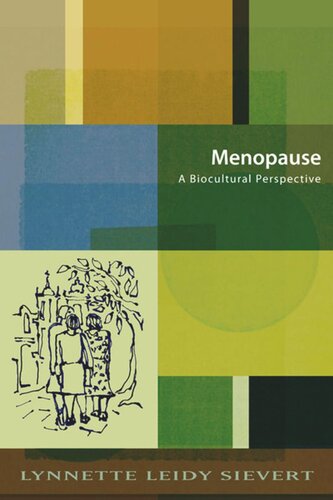

Most ebook files are in PDF format, so you can easily read them using various software such as Foxit Reader or directly on the Google Chrome browser.
Some ebook files are released by publishers in other formats such as .awz, .mobi, .epub, .fb2, etc. You may need to install specific software to read these formats on mobile/PC, such as Calibre.
Please read the tutorial at this link: https://ebookbell.com/faq
We offer FREE conversion to the popular formats you request; however, this may take some time. Therefore, right after payment, please email us, and we will try to provide the service as quickly as possible.
For some exceptional file formats or broken links (if any), please refrain from opening any disputes. Instead, email us first, and we will try to assist within a maximum of 6 hours.
EbookBell Team

4.8
74 reviewsMenopause is a biological reality for all women in their forties and fifties. Yet the way we think about the cessation of menstruation is influenced by a variety of factors. Cultural and technological influences combine with biology to transform this universal phenomenon into an experience that varies considerably between cultures and individuals. In this concise book, Lynnette Leidy Sievert draws on her own case studies from Puebla, Mexico, and western Massachusetts, as well as on comparative data from other studies in places such as Slovenia, Paraguay, and Hawaii, to explore the different ways that women experience menopause around the world. Sievert suggests that attempts by medical professionals to define the “normal” occurrence of menopause, including its typical onset and symptoms, may not be realistic when considering how lifestyle, nutrition, and workload can contribute to diverging realities. She explores how women feel about hysterectomies, chemotherapy, and other medical procedures and treatments that stop menstruation prematurely. She also considers recent advances in technology, including post-menopausal birth, which have turned what was previously an unavoidable end of fertility into something that can be postponed.
A unique comparative look at women’s experiences, this text brings new perspectives to the mainstream literature on the subject and invites readers to consider compelling questions about menopause, its meanings, and its future.